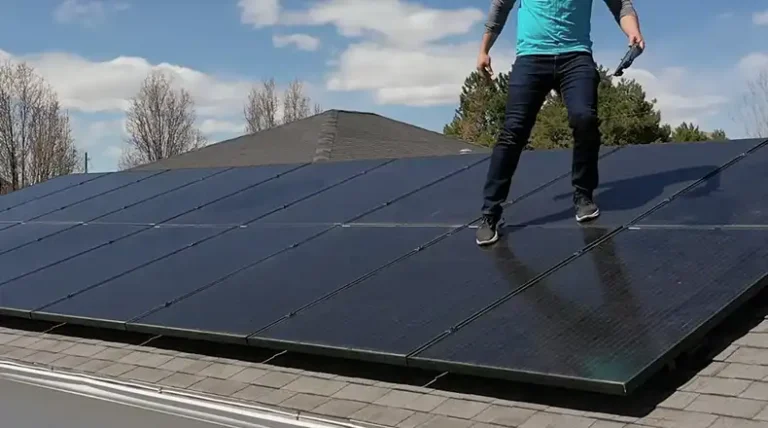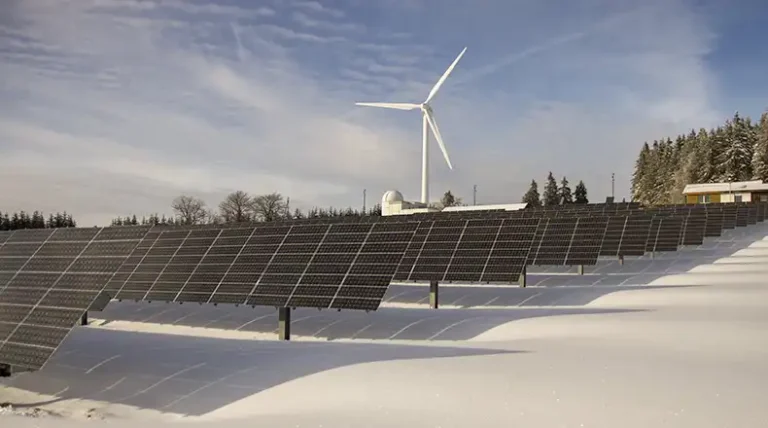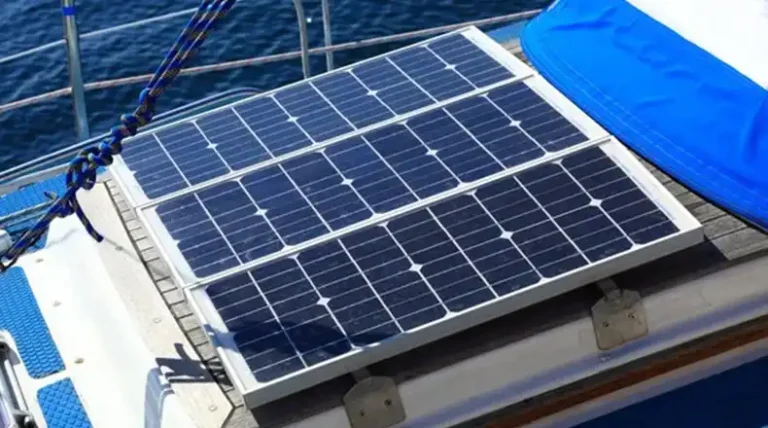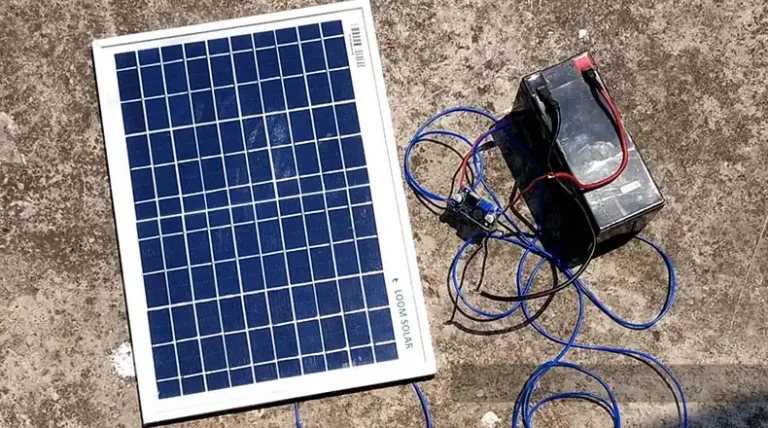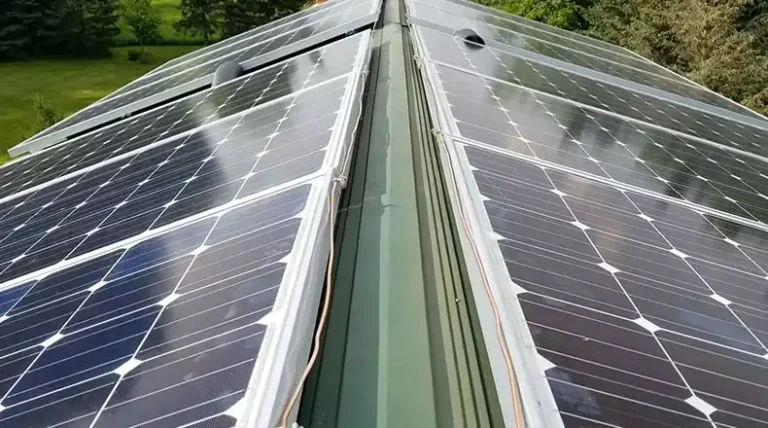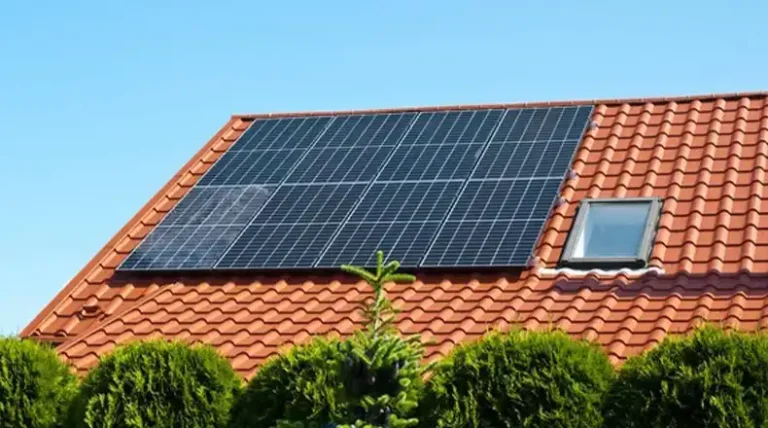Can I Get Solar Panels with Bad Credit?
Installing solar panels on your home is an excellent way to save money on electricity bills and do your part for the environment. However, the upfront cost of solar panel systems can be quite high, making it difficult for some homeowners to afford, especially those with poor credit scores. But don’t lose hope just yet! There are still options available to help you go solar, even if your credit isn’t in the best shape. In this detailed guide, we’ll explore the credit score requirements for solar loans and alternative financing options that can make your dream of going solar a reality.
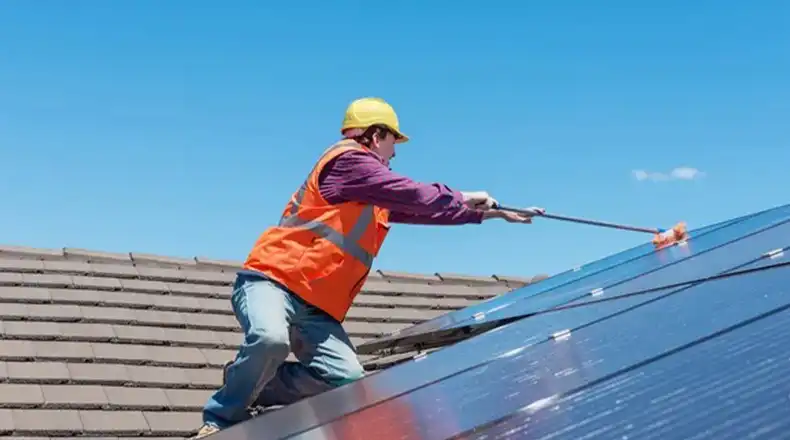
How Much Credit Score is Needed for Getting Solar Loans?
Most solar loan providers require a minimum FICO credit score of 650 or higher for you to qualify for their loans. However, the interest rates and terms you’ll be offered can vary depending on your exact score. Borrowers with credit scores between 680 and 719 can often get lower interest rates than those with scores just above the minimum requirement. And if your score is 720 or above, you’ll typically be eligible for the best interest rates and most favourable loan terms.
On the other hand, if your credit score falls into the “poor” or “very poor” range, it can be a significant obstacle to getting approved for a solar loan. A FICO score below 580 or a VantageScore below 601 is generally considered “bad” credit. Scores between 300 and 660 may also be considered poor, depending on the lender.
If your credit score isn’t in great shape, you might not be able to secure a traditional solar loan with reasonable interest rates and terms. But wait! Before you banish all hope of rooftop sunshine, here’s the good news: a bad credit score doesn’t automatically disqualify you from the solar game.
So How is it Possible to Get Solar Loans with a Bad Credit Score?
Don’t worry – even with a less-than-perfect credit score, there are still ways for you to make the switch to solar power. Let’s take a look at some alternative financing options that can help make your solar dreams a reality.
Leases and Power Purchase Agreements (PPAs)
One option worth considering is a solar lease or a power purchase agreement (PPA). With a solar lease, you essentially rent the solar panels from a provider and pay a monthly fee, rather than purchasing the system outright. A PPA is similar, but instead of renting the panels themselves, you’re purchasing the electricity generated by the solar panel system at a fixed rate from a third-party owner.
The great thing about solar leases and PPAs is that they typically don’t require a credit check, which means your poor credit score won’t be a barrier to taking advantage of these options. However, it’s important to note that while these agreements can make solar more accessible upfront, they may end up costing you more in the long run compared to purchasing a solar system outright.
Another potential downside of PPAs is that they can limit your ability to sell your home in the future, as the new homeowner would need to assume the existing PPA contract.
Government Incentives and Grants
Many state and local governments offer incentives and grants specifically designed to help homeowners install solar panels and make the switch to renewable energy more affordable. These incentives can come in the form of rebates, tax credits, or other financial incentives that can significantly reduce the upfront cost of a solar panel system. For homeowners with bad credit, taking advantage of these government incentives can be a game-changer, as they can help offset the cost of going solar, making it a more realistic option.
One type of government-funded loan program worth exploring is the Property Assessed Clean Energy (PACE) loan or the FHA PowerSaver loan. With a PACE loan, you can finance your solar panel installation and repay the loan over a period of up to 30 years through an annual assessment on your property taxes.
Here are some key points about PACE loans:
- They can be used for both residential and commercial properties.
- The loan is attached to the property itself, rather than the individual homeowner.
- Loan payments are made through your property tax assessments and are essentially treated as a tax lien on your home.
- If you decide to sell your home, the remaining balance of the PACE loan will transfer to the new owner.
- It can sometimes be difficult to sell a home with an existing PACE loan, as some mortgage lenders may be hesitant to provide financing for properties with these types of loans attached.
Other Financing Options
In addition to leases, PPAs, and government incentives, there are a few other financing options worth considering if you have bad credit and want to go solar:
- Personal Loans: Some lenders offer personal loans specifically for the purpose of financing solar panel installations. While these loans may come with higher interest rates for borrowers with poor credit, they can still be a viable option if you’re unable to secure more traditional financing.
- Home Equity Loans or Lines of Credit: If you’ve built up equity in your home, you may be able to use a home equity loan or line of credit to finance your solar panel system. These types of loans are secured by the value of your home, which can sometimes make them easier to qualify for, even with bad credit.
- Crowdfunding: In recent years, crowdfunding platforms have emerged as an alternative way to finance various projects, including solar panel installations. These platforms allow many individuals to contribute small amounts of money towards your project, which can add up and potentially cover the full cost of installation.
- Community Solar Programs: Some communities offer what’s known as “community solar” programs, where residents can subscribe to a shared solar array and receive credits on their utility bills for the energy produced. These programs often have lower credit score requirements than traditional solar loans, making them a potential option for those with bad credit.
Improving Your Credit Score
While exploring alternative financing options is crucial if you have bad credit and want to go solar, it’s also a good idea to work on improving your credit score over time. Improving your credit score takes some time and effort, but it’s definitely achievable. Here are some key steps:
- Check your credit report: You’re entitled to a free credit report from each of the three major bureaus annually. Make sure there are no errors and dispute any mistakes you find. This can improve your score quickly.
- Pay bills on time: This is the most crucial factor affecting your credit score. Late payments can significantly hurt your score, so set up autopay or reminders to avoid missing deadlines.
- Keep credit utilization low: This refers to the amount of credit you’re using compared to your limit. Ideally, you should keep it below 30%. Paying down credit card balances can significantly improve your score.
- Build credit history: If you have no credit history, consider getting a secured credit card. These cards require a deposit upfront, but using them responsibly can help build a positive credit history.
- Don’t apply for too much credit at once: Every time you apply for a new credit card or loan, it results in a hard inquiry on your credit report, which can slightly lower your score. So, avoid applying for multiple lines of credit in a short period.
These are some of the main ways to improve your credit score. Remember, it won’t happen overnight, but by consistently following these steps, you can see a positive difference over time.
Conclusion
Going solar is a smart investment that can save you money on energy costs in the long run while also reducing your carbon footprint and reliance on traditional, non-renewable energy sources. And while a poor credit score can certainly present challenges when it comes to securing financing for solar panels, there are still plenty of options available to help make your solar dreams a reality. So, choose whichever you find the best and go GREEN today!

